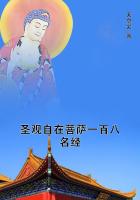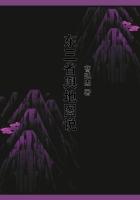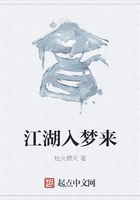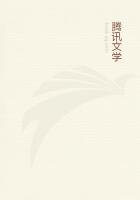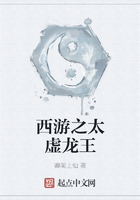About books, however, I have not many more confessions that I care to make. A man's old self is so far away that he can speak about it and its adventures almost as if he were speaking about another who is dead. After taking one's degree, and beginning to write a little for publication, the topic has a tendency to become much more personal. My last undergraduate literary discoveries were of France and the Renaissance. Accidentally finding out that I could read French, I naturally betook myself to Balzac. If you read him straight on, without a dictionary, you begin to learn a good many words. The literature of France has been much more popular in England lately, but thirty years agone it was somewhat neglected.
There does seem to be something in French poetry which fails to please "the German paste in our composition." Mr. Matthew Arnold, a disciple of Sainte-Beuve, never could appreciate French poetry.
A poet-critic has even remarked that the French language is nearly incapable of poetry! We cannot argue in such matters, where all depends on the taste and the ear.
Our ancestors, like the author of the "Faery Queen," translated and admired Du Bellay and Ronsard; to some critics of our own time this taste seems a modish affectation. For one, I have ever found an original charm in the lyrics of the Pleiad, and have taken great delight in Hugo's amazing variety of music, in the romance of Alfred de Musset, in the beautiful cameos of Gautier. What is poetical, if not the "Song of Roland," the only true national epic since Homer? What is frank, natural verse, if not that of the old Pastourelles? Where is there *****te of narrative and unconscious charm, if not in Aucassin et Nicolette? In the long normally developed literature of France, so variously rich, we find the nearest analogy to the literature of Greece, though that of England contains greater masterpieces, and her verse falls more winningly on the ear. France has no Shakespeare and no Milton; we have no Moliere and no "Song of Roland." One star differs from another in glory, but it is a fortunate moment when this planet of France swims into our ken. Many of our generation saw it first through Mr. Swinburne's telescope, heard of it in his criticisms, and are grateful to that watcher of the skies, even if we do not share all his transports. There then arose at Oxford, out of old French, and old oak, and old china, a "school" or "movement." It was aesthetic, and an early purchaser of Mr. William Morris's wall papers. It existed ten or twelve years before the public "caught on," as they say, to these delights. But, except one or two of the masters, the school were only playing at aesthetics, and laughing at their own performances. There was more fun than fashion in the cult, which was later revived, developed, and gossiped about more than enough.
To a writer now dead, and then first met, I am specially bound in gratitude--the late Mr. J. F. M'Lennan. Mr. M'Lennan had the most acute and ingenious of minds which I have encountered. His writings on early marriage and early religion were revelations which led on to others. The topic of folk-lore, and the development of custom and myths, is not generally attractive, to be sure. Only a few people seem interested in that spectacle, so full of surprises--the development of all human institutions, from fairy tales to democracy. In beholding it we learn how we owe all things, humanly speaking, to the people and to genius. The natural people, the folk, has supplied us, in its unconscious way, with the stuff of all our poetry, law, ritual: and genius has selected from the mass, has turned customs into codes, nursery tales into romance, myth into science, ballad into epic, magic mummery into gorgeous ritual. The world has been educated, but not as man would have trained and taught it. "He led us by a way we knew not," led, and is leading us, we know not whither; we follow in fear.
The student of this lore can look back and see the long trodden way behind him, the winding tracks through marsh and forest and over burning sands. He sees the caves, the camps, the villages, the towns where the race has tarried, for shorter times or longer, strange places many of them, and strangely haunted, desolate dwellings and inhospitable. But the scarce visible tracks converge at last on the beaten ways, the ways to that city whither mankind is wandering, and which it may never win. We have a foreboding of a purpose which we know not, a sense as of will, working, as we would not have worked, to a hidden end.
This is the lesson, I think, of what we call folklore or anthropology, which to many seems trivial, to many seems dull. It may become the most attractive and serious of the sciences;certainly it is rich in strange curiosities, like those mystic stones which were fingered and arrayed by the pupils in that allegory of Novalis. I am not likely to regret the accident which brought me up on fairy tales, and the inquisitiveness which led me to examine the other fragments of antiquity. But the poetry and the significance of them are apt to be hidden by the enormous crowd of details. Only late we find the true meaning of what seems like a mass of fantastic, savage eccentricities. I very well remember the moment when it occurred to me, soon after taking my degree, that the usual ideas about some of these matters were the reverse of the truth, that the common theory had to be inverted. The notion was "in the air," it had already flashed on Mannhardt, probably, but, like the White Knight in "Alice," I claimed it for "my own invention."These reminiscences and reflections have now been produced as far as 1872, or thereabouts, and it is not my intention to pursue them further, nor to speak of any living contemporaries who have not won their way to the classical. In writing of friends and teachers at Oxford, I have not ventured to express gratitude to those who still live, still teach, still are the wisest and kindest friends of the hurrying generations. It is a silence not of thanklessness, but of respect and devotion. About others--contemporaries, or juniors by many years--who have instructed, consoled, strengthened, and amused us, we must also be silent.


